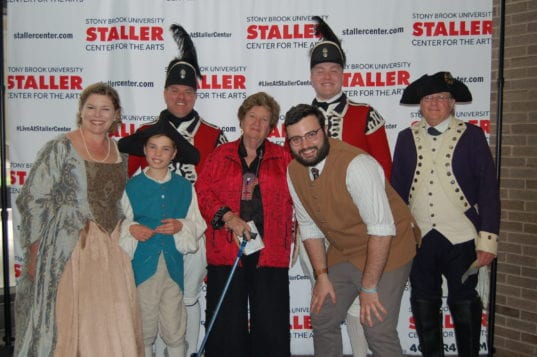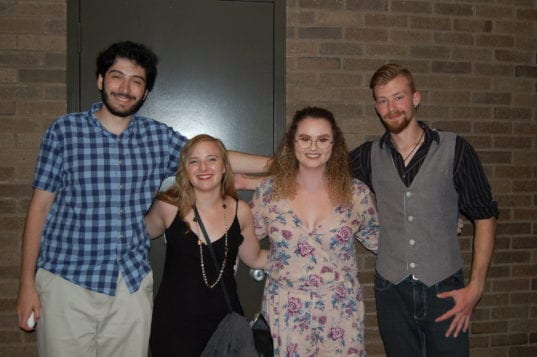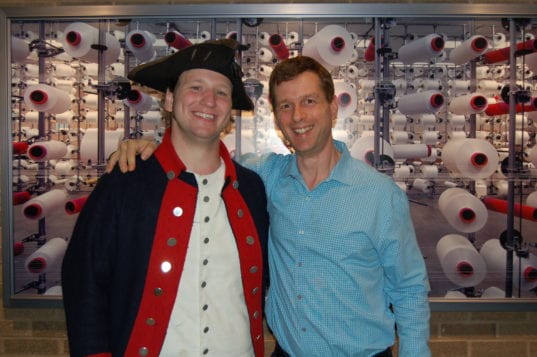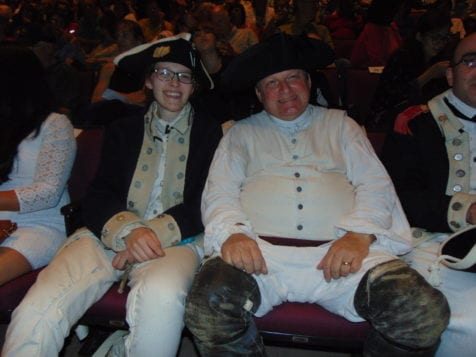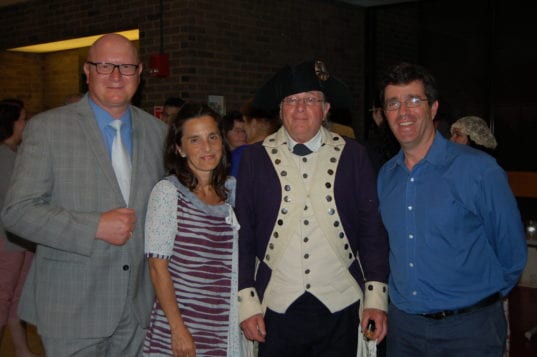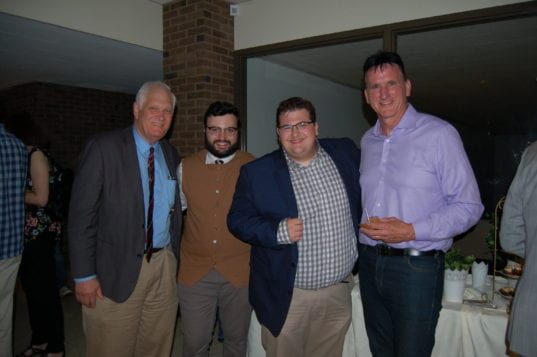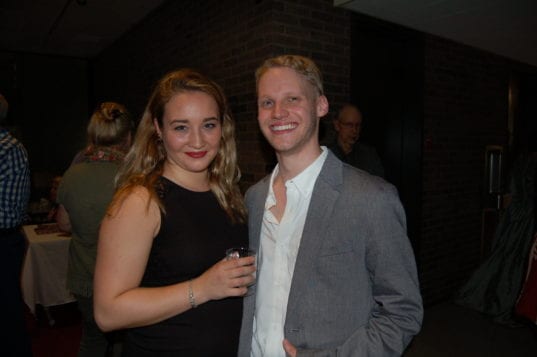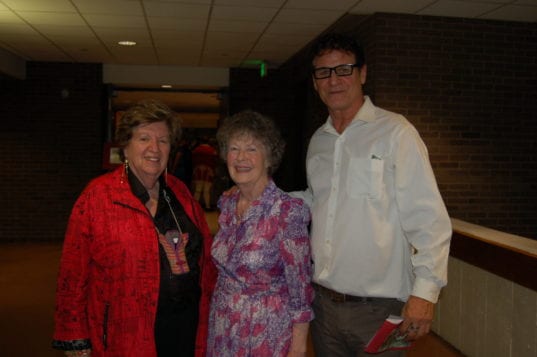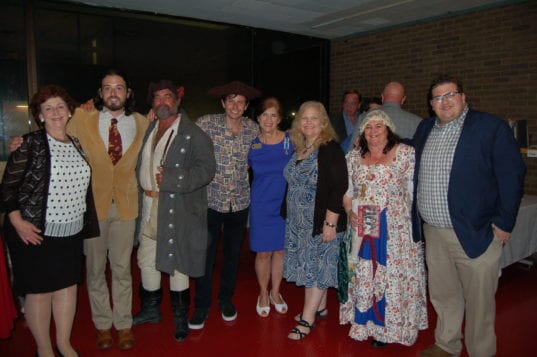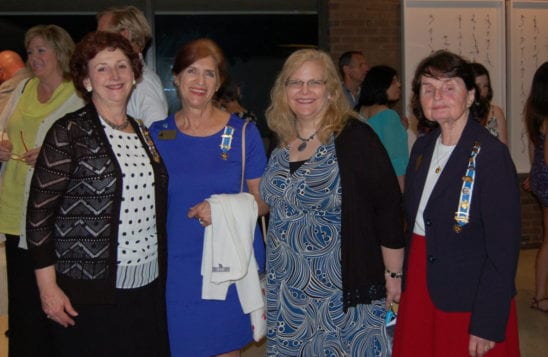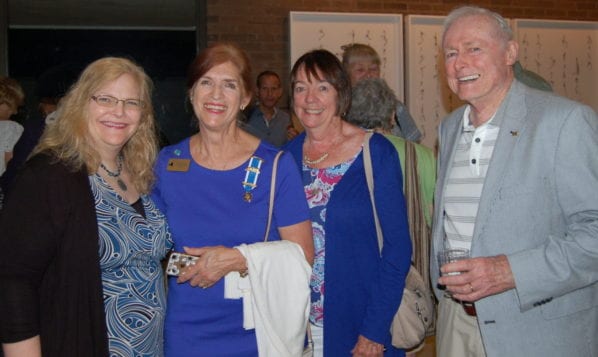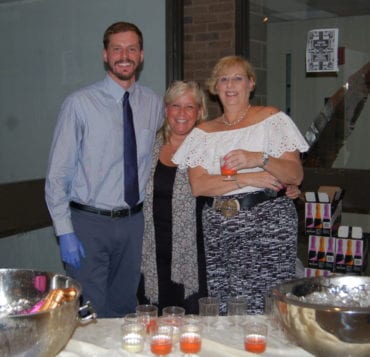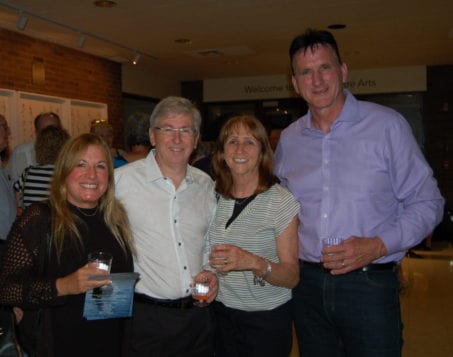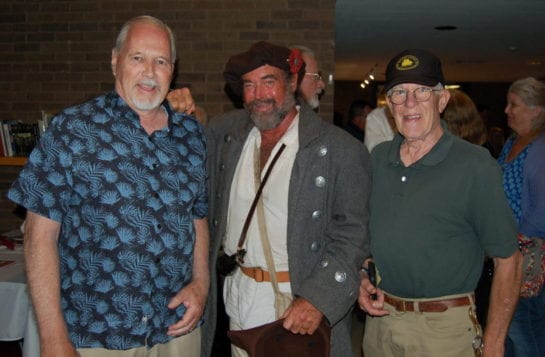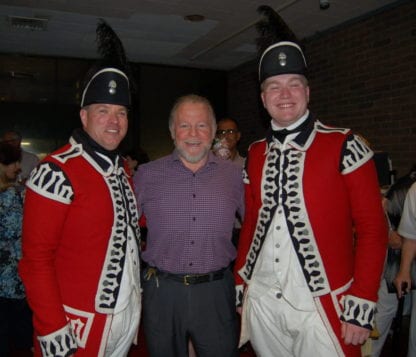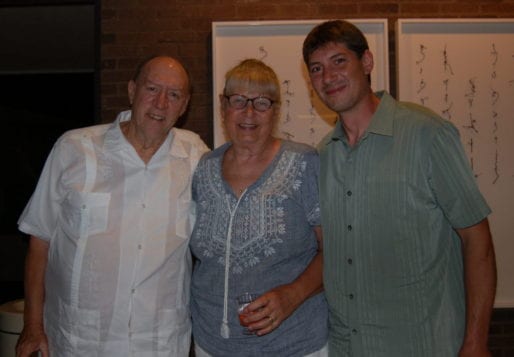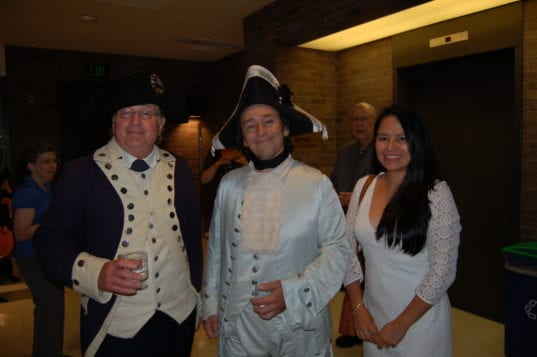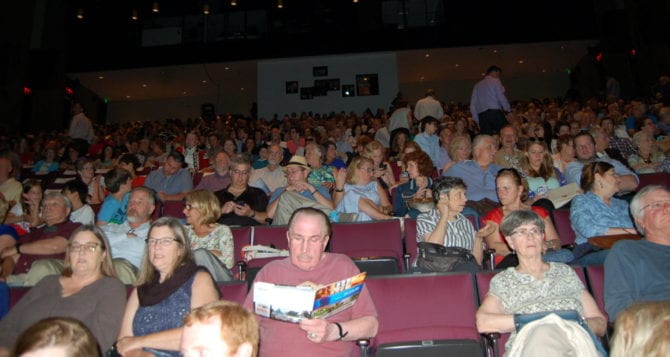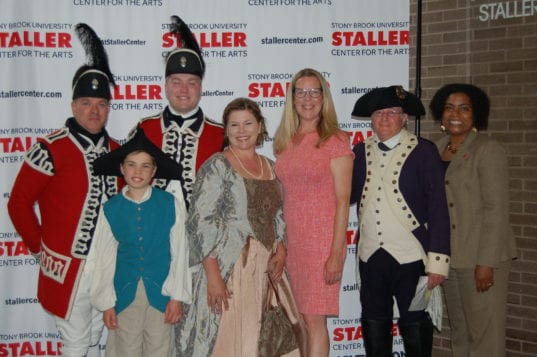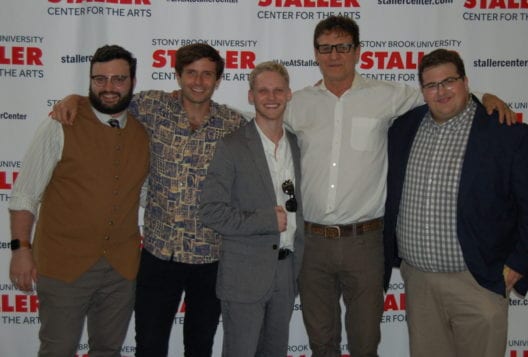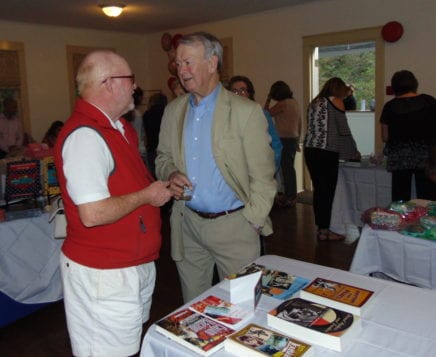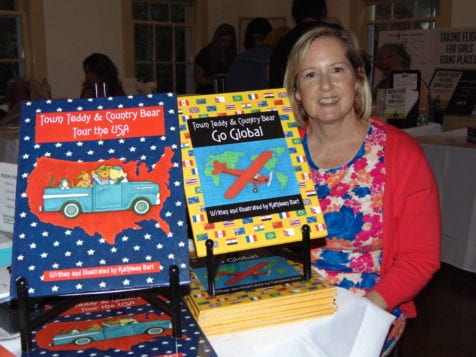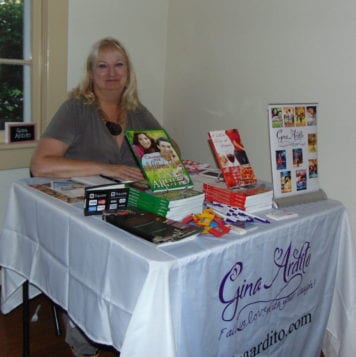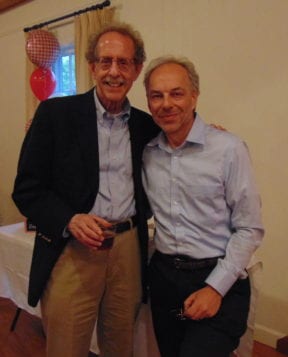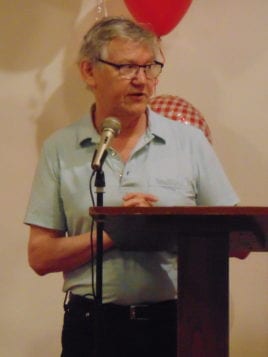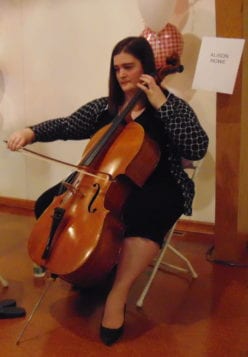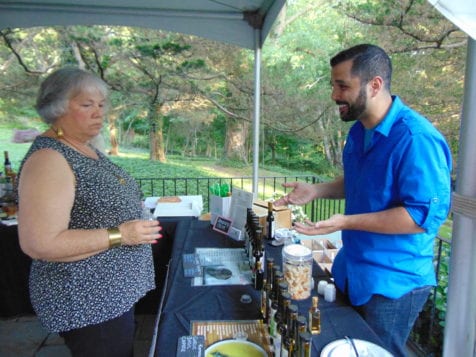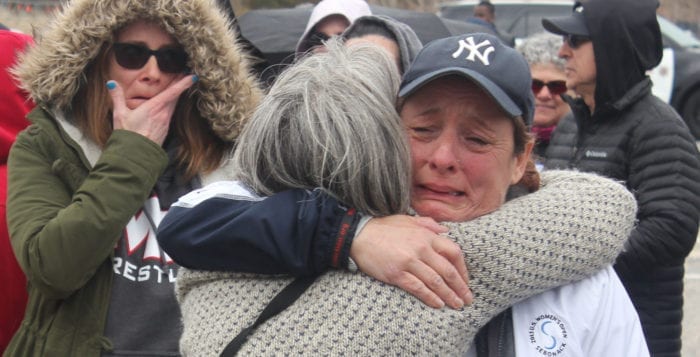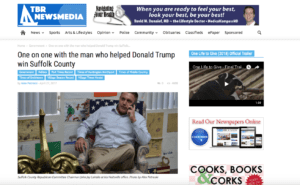By Heidi Sutton
The 1,000-seat theater at Stony Brook University’s Staller Center was filled to capacity last Sunday night as the community came out in droves to celebrate the first screening of TBR News Media’s feature-length film, “One Life to Give.” And what a celebration it was.
“I have to say this exceeds our highest expectations. We are so thrilled,” said TBR News Media publisher Leah Dunaief, scanning the packed house as she welcomed the audience to “what has been a year’s adventure.”
“I am privileged to be the publisher of six hometown papers, a website, a Facebook page and, now, executive producer of a movie,” she beamed.
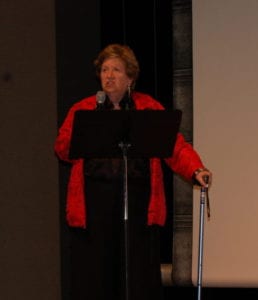
Dunaief set the stage for what would be a wonderful evening. “I’m inviting you now to leave behind politics and current affairs and come with me back in time more than two centuries to the earliest days of the beginning of our country — the start of the American Revolution.”
“We live in the cradle of history and I hope that when you leave tonight you will feel an immense pride in coming from this area,” she continued. “The people who lived here some 240 years ago were people just like us. They were looking to have a good life, they were looking to raise their children.” Instead, according to Dunaief, they found themselves occupied by the British under King George III for the longest period of time.
Filmed entirely on location on the North Shore in 16 days, the film tells the story of schoolteacher turned spy Nathan Hale and how his capture and ultimate death by hanging in 1776 at the age of 21 led to the development of an elaborate spy ring in Setauket — the Culper spies — in an effort to help Gen. George Washington win the Revolutionary War.
Scenes were shot on location at Benner’s Farm in East Setauket, the William Miller House in Miller Place, the Sherwood-Jayne Farm, Thompson House and Caroline Church of Brookhaven in Setauket and East Beach in Port Jefferson with many local actors and extras, period costumes by Nan Guzzetta, props from “TURN” and a wonderful score by Mark Orton.
The film screening was preceded by a short behind-the-scenes documentary and was followed by a Q&A with Dunaief, producer and writer Michael Tessler and director and writer Benji Dunaief along with several key actors in the film — Dave Morrissey Jr. (Benjamin Tallmadge), Hans Paul Hendrickson (Nathan Hale), Jonathan Rabeno (John Chester) and David Gianopoulos (Gen. George Washington).
“It says quite a bit about our community that we could pack the Staller Center for a story that took place over two hundred years ago,” said Tessler, who grew up in Port Jefferson. “I hope everyone leaves the theater today thinking about these heroes — these ordinary residents of our community who went on to do some extraordinary things and made it so that we all have the luxury to sit here today and enjoy this show and the many freedoms that come with being an American.”
Director Benji Dunaief thanked the cast, crew and entire community for all their support. “In the beginning of this project I did not think we would be able to do a feature film, let alone a period piece. They say it takes a village, but I guess it actually takes three.”

“Our cast … threw themselves 100 percent into trying to embody these characters, they learned as much as they could and were open to everything that was thrown at them — I’m blown away by this cast. They are just incredible,” he added.
“The positivity that was brought to the set every day made you really want to be in that environment,” said Rabeno, who said he was humbled to be there, and he was quick to thank all of the reenactors who helped the actors with their roles.
One of the more famous actors on the stage, Gianopoulos (“Air Force One”) was so impressed with the way the production was handled and often stopped by on his day off just to observe the camera shots. “I really enjoyed just watching and being an observer,” he said, adding “It was just such an honor [to be a part of the film] and to come back to Stony Brook and Setauket where I used to run around as a little kid and then to bring this story to life is just amazing.”
According to the director, the film has been making the rounds and was recently nominated for three awards at Emerson College’s prestigious Film Festival, the EVVY Awards, including Best Editing, Best Writing and Best Single Camera Direction and won for the last category.
Reached after the screening, Assemblyman Steve Englebright (D-Setauket) said the film was the essence of a sense of place. “I thought it was spectacular. I thought that it was one of the highlights of all of the years that I have lived in this community.”
He continued, “It all came together with local people and local places talking about our local history that changed the world and the fact that it was on the Staller Stage here at a public university that was made possible by the heroics of the people who were in the film both as actors today and the people that they portrayed.”
For those who missed last Sunday’s screening, the film will be shown again at the Long Island International Film Expo in Bellmore on July 18 from 2 to 4 p.m.
Filming for a sequel, tentatively titled “Traitor,” the story of John André who was a British Army officer hanged as a spy by the Continental Army during the Revolutionary War, will begin in two weeks.
Special thanks to Gold Coast Bank, Holiday Inn Express, Island Federal Savings Bank and Stony Brook University for making the evening’s screening possible.
Photos by Heidi Sutton and Rita J. Egan

